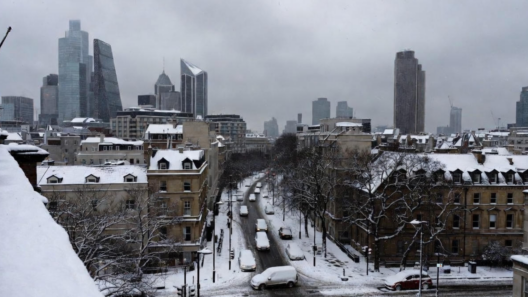The Experience Economy is having a moment, and London’s West End is at the center of it. A new report from the Heart of London Business Alliance (HOLBA) reveals just how much this sector is driving growth, proving that immersive experiences, entertainment, and hospitality are shaping the future of the city. From multimillion-pound investments to record-breaking footfall, the report highlights the need for bold strategies to ensure the West End remains a world-leading destination.
The Experience Economy: A £10 Billion Powerhouse
London’s West End isn’t just about theatre and shopping anymore. The area has evolved into a full-blown experience hub, drawing in visitors with immersive theatre, interactive exhibitions, casinos, and high-energy nightlife. According to HOLBA, the Experience Economy contributes over £10 billion annually to the UK economy.
Consumer habits are shifting, and young audiences are leading the charge. The report reveals that UK consumers aged 18-34 spent 67% more than the national average on experiences between July and September last year. Traditional retail is taking a back seat as people prioritise social, sensory, and cultural experiences over material goods.
The numbers don’t lie. The West End welcomed 22.6 million visitors in just three months last year, with 14.4 million domestic and 8.2 million international guests exploring the area. That’s a 6.7% increase in footfall compared to the same period in 2023. Clearly, the demand for immersive experiences is only growing.
Massive Investments Are Reshaping the West End
With this surge in demand, businesses are taking action. HOLBA’s report identifies over £370 million in hotel refurbishments and plans for 41,000 square feet of new casino space. Landmark areas like Leicester Square, Piccadilly Circus, Regent Street, and Haymarket are set for major real estate and public space developments, ensuring the area continues to attract global visitors.
The Experience Economy isn’t just about what’s happening now—it’s about the future. The UK Government’s Industrial Strategy Green Paper highlights this sector as a key growth opportunity, alongside tech innovation and sustainability. HOLBA is calling for policymakers, investors, and businesses to work together to develop a coordinated economic strategy, ensuring the West End stays ahead of the game.
How to Expand the Experience Economy in London
To keep the momentum going, HOLBA suggests several strategies to strengthen and expand the Experience Economy in the West End:
Short-term leases for pop-ups – Offering space to retailers, brands, and institutions for experimental, experience-driven activations.
Public space takeovers – Transforming streets and squares into interactive environments.
Investing in tech innovation – Enhancing experiences with AR, VR, and AI to create world-class attractions.
Blending physical and digital worlds – Expanding hybrid entertainment and immersive events.
Cross-sector collaborations – Encouraging partnerships between entertainment, hospitality, and retail for next-level experiences.
Experience-led business clusters – Creating districts dedicated to interactive entertainment and cultural experiences.
By embracing these opportunities, London can position itself as a global leader in the Experience Economy.
Why the West End Is Booming Post-Pandemic
The post-pandemic rebound is real. HOLBA’s Quarterly Real Estate Insights Report shows that commercial occupancy rates in the West End hit 97.3% last year. Meanwhile, restaurants, bars, and hospitality venues achieved a 100% occupancy rate, proving that London’s nightlife and dining scenes are stronger than ever.
Hotels are also thriving. Revenue increased by 4.5% in Q2 2024, while occupancy rates rose by up to 2% year-over-year. These numbers confirm that visitors aren’t just spending on one-off experiences—they’re making the West End their go-to destination for entertainment, dining, and accommodation.
Bringing Industry Leaders Together: Future Talks
HOLBA isn’t just reporting on the trends—it’s sparking conversations. Last month, the Future Talks event gathered over 100 business executives and investors to discuss the Experience Economy’s future.
Speakers included:
Ros Morgan, Chief Executive of HOLBA
Dr. Bo Bernhard, VP of Economic Development at the University of Las Vegas
Laura Citron OBE, CEO of London & Partners
The event also featured a powerhouse panel led by Anna van Praagh (The Standard), with insights from industry leaders like:
Simon Thomas (The Hippodrome Casino)
Tom Lionetti-Macguire (Little Lion Productions)
Richard Ellwood (The Crown Estate)
Sana Ali-Aamir (Fever)
Future Talks is just the beginning. With major investments on the horizon and increasing demand for immersive experiences, the West End is set to redefine entertainment and hospitality in 2025 and beyond.
London’s Experience Economy Is Just Getting Started
The West End isn’t slowing down—it’s levelling up. With record-breaking footfall, multimillion-pound investments, and a rapidly growing demand for immersive entertainment, the future of London’s Experience Economy looks bright. HOLBA’s report proves that this sector isn’t just a trend; it’s the new foundation of economic growth in the city.
Londoners and visitors alike are choosing experiences over possessions, and businesses are responding in kind. With tech innovation, creative collaborations, and major redevelopment projects on the way, the West End is set to remain the ultimate destination for unforgettable experiences.






